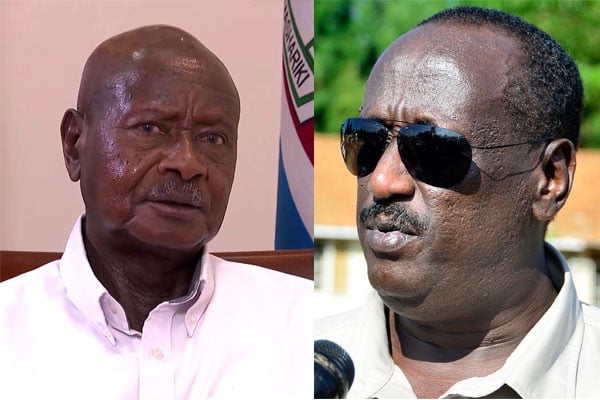Prime
Bihogo Vs Birundura: We can earn more from less

AUTHOR: Ben Matsiko Kahunga. PHOTO/FILE/COURTESY
What you need to know:
- The key terms of the business is sharing of offsprings alternately between the owner and the herder.
- Individual and community wealth is the result and impact of this abundance mindset.
‘…we are back to the Bihogo versus Birundura duel…., we don’t need this…the Pissing Man in Brussels attracts over 3 million tourists annually…we can earn more from less…these things of Obote II and Mamdani…ekikatu kya Ntarushokye…only Benedikto Mubangizi documents this tragedy…no, we can do better…we need conservation, not destructive protection…’
We bumped into Mzee Mashurubu, in that pensant mode, which defines those moments he delves into matters national and global. Although long retired from active public life (he disrupted a high-flying corporate life to join the liberation forces in Tanzania in the mid70s), he maintains a radical position on the role and position of Africa in global matters. And so, it was that he had just read the trending stories about the issue of the Balaalo in northern Uganda. Visibly irritated, Mzee argues that this strange phenomenon has its roots in our squinted development, where we have succumbed to protectionism policies hatched, imposed and financed from outside. We therefore are on the verge of prioritising a hyena (Birundura) over the millenia-old indigenous cow (Bihogo).
Yet we can have both. They had co-existed here since time immemorial, under age-old cultural norms and practices of convervation and symbiosis between man and nature, species and ecoystems, before all was turned on its head by foreign ‘protectionist’ policies, which pitted man against the nature he had conserved for ages. This is how pastoralist life in large swathes of fertile pasture plains in Busongora, Mpororo for example, was disrupted and its inhabitants forcefully pushed out. The fertile plains became a national park, a no-go area to the people who had co-existed with and conserved the wildlife therein.
It became a protected area. Protected from its owners. This natural heritage, integral part of community life, is overnight, a leisure and hunting backyard for English royalty. By stroke of a plume.
Pastoralists forced out. They become ‘invaders’ and ‘nomads’ whose herds had to be reduced to a tenth of their numbers, an episode only in oral memory and poetry(the infamous inoculation by Ntarushokye: ekikatu kya Ntarushokye), the colonial veterinary assistant that executed this herd decimating operation.
A similar gazetting episode in the early 1980s by the UPC government in the Nshaara area of Nkore cost a university professor his Ugandan citizenship for his comments on the same: beast wins against man. Prof Mahmood Mamdani only regained his citizen and returned to Uganda when NRM came into power.
We can’t perpetuate this, Mzee insists. Even from a purely economic angle, have we taken the trouble to do a comparative cost-benefit analysis between agro-pastoralism with conservancy, and tourism via pure protectionism? Simply put: what would be the economic implications of degazetting half of Queen Elisabeth National Park into a pastoral economic zone with conservancy? How about extensive commercial cereal agriculture (maize, millet, sorghum) and aquaculture versus protectionism in the Murchison National Park? Would degazetting half of this national park into a conservancy area have an effect on wildlife survival and tourism revenue? Our gurus at National Planning Authority, Economic Policy Research Centre and other ‘think tanks’ can do the econometrics and tell us. Wouldn’t this solve the issue of land scarcity and conflicts as we are now witnessing in the Balaalo saga?
Even from a purely tourism angle, we can attract more tourists and earn much more dollars with fewer national parks…it is not about the number of national parks. The Belgian capital, Brussels attracts over three million tourists annually with a single tourist attraction: the Pissing Man, that legendary ka-mascot depicting their god who saved the city from an inferno by pissing on the fire. We only need a total repositioning. And there is no better time than now.
Even within the current setting, we can revert to our cultural practices for a symbiotic co-existence between pastoralists and cultivators. The Nkore-Karagwe-Mpororo agro-pastoralist economy has the age-old practice of okuhereka. This is where a cultivator acquires animals (buying, gifted, dowry) and entrusts them to a pastoralist with a herd.
The key terms of the business is sharing of offsprings alternately between the owner and the herder. Individual and community wealth is the result and impact of this abundance mindset.




